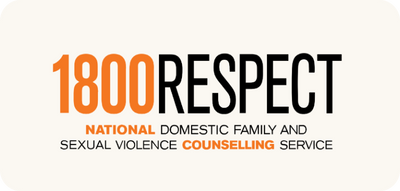Help is available for anyone experiencing homelessness
Every night, more than 122,000 Australians experience homelessness.
Homelessness isn’t just about sleeping rough. It can also mean staying in a shelter, couch surfing, or living in a car. If you’re facing homelessness, you are not alone, and it isn’t your fault. Many different factors, often outside your control, can make it hard to keep stable housing.
Being without stable housing can take a toll on your body as well as how you see yourself. It’s easy to start doubting your worth or feel like you don’t matter, but none of that is true. You are worthy, capable, and deserving of care and support.
No matter what’s happened, you still have value. Remembering this can help you take small steps towards stability and reconnect with the hope that things can change.
In this homelessness support guide, you’ll find information on:
- Where to find immediate help for food, shelter, and safety
- Ways to take care of your wellbeing during tough times
- Steps to rebuild stability and find support
- National and local services that can help
- Tips for supporting someone experiencing homelessness.
Scroll down to learn more.
Accessing support for food & shelter
Homelessness can affect every part of life.
- Looking after your health can be difficult: Finding medical care, mental health support, or medications isn’t always easy.
- Lack of sleep can make everything harder: Without enough rest, it’s easy to feel tired, down, or unsure what to do next.
- It can feel lonely or isolating: Losing stable housing can also mean losing connections with friends, family, or support networks.
- Getting work or support may feel like a challenge: Without a fixed address, ID, or reliable transport, things like applying for jobs or accessing services can be more complicated.
No matter your situation, worrying about where to sleep or when you’ll eat next can often be the most overwhelming. When your basic needs aren’t met, it’s hard to focus on anything else.
Below, you’ll find information on where and how to access food and shelter while staying safe.
- Free meals and foodbanks
- Emergency and short-term housing services
- Where to rest, stay warm, and access essentials
You can also use Lifeline’s Service Finder to search for local support, including food programs, crisis accommodation, and emergency relief.
Try searching keywords like ‘homelessness support,’ ‘free meals,’ ‘emergency housing,’ or ‘financial assistance’ to find services near you.
Tips for staying safe
Your safety matters. While homelessness can put you in unsafe situations, there are steps you can take to protect yourself.
Below, you can find tips for protecting your physical safety as well as your wellbeing.
- Staying safe in shelters
Crisis shelters aim to provide a safe space, but they can sometimes feel unsafe, especially if there’s violence, theft, or substance use. Some people choose to sleep rough because they feel shelters aren’t the right option for them.
If you’re in this situation, here are some things that can help:
- Ask about safer options: Some shelters offer women-only spaces, youth shelters, LGBTQIA+ inclusive housing, or separate areas for families.
- Check shelter rules: Some shelters have curfews, restrictions on belongings, or no-drug policies that may make the space feel safer.
- Trust your instincts: If a shelter doesn’t feel safe, ask staff about other options or request a referral to another crisis service.
- Reach out for support: A caseworker, outreach team, or crisis service may be able to help you find a better option.
- Protecting your belongings
- Avoiding isolation
- Staying safe if using substances
- What to do if you've experienced violence or sexual assault

“Homelessness was a big challenge. I stayed with my brothers and even crashed on a mate’s couch, which was too small for me. Eventually, I ended up at Centennial Lodge, run by the Salvation Army, and spent time with organisations like Ozcare and Mission Australia. One of the counsellors at Ozcare helped me start turning my life around. She gave me tools to understand myself and my behaviours. That was the beginning of my recovery.”
Looking after your wellbeing
Homelessness can last for days, weeks, months, or years. And the longer it continues, the harder it can feel to cope. It’s common to feel overwhelmed, exhausted, or even disconnected from yourself and others. Feeling stressed, unsafe, or judged can start to wear down your confidence and sense of identity.
Self-esteem and mental health are closely connected; when one is impacted, the other often is too. That’s why taking care of your wellbeing matters so much right now. Looking after your mind and body isn’t just about ‘feeling better’. It’s about remembering who you are beneath the stress: someone who matters, who has strengths, and who is worth supporting.
Here are some simple ways to care for yourself, wherever you are:
- Move your body: A short walk, stretching, or deep breathing can help relieve tension and clear your mind.
- Rest when you can: Sleep may not always be easy to find, but even sitting in a safe place and taking a few deep breaths can help restore your energy.
- Stay hydrated and eat what’s available: Drinking water and getting some food in your system, even if it’s just a snack, can help with focus and energy levels.
- Listen to music or podcasts: Tuning into something familiar can provide comfort and escape. Many libraries and community centres offer free wifi and charging stations.
- Find small moments of comfort: Washing your face in a public restroom, wrapping up in a jacket, or holding onto a personal item can help you feel more grounded.
- Be kind to yourself: If your inner voice is harsh, try speaking to yourself as you would a friend. Even saying ‘I’m doing my best’ can make a difference.
If you're unsure where to start, ask yourself: What’s one thing I can do today to feel just a little better? Even small acts of self-care, like taking a deep breath or having a warm drink, are ways of looking after yourself.
Continue reading for more ways to manage stress, regain a sense of control, and find moments of relief, even if just for today.
- Try box breathing
Box breathing is a simple breathing technique that helps calm your body and mind. It works by slowing your breath and focusing your attention.
If you’re experiencing racing thoughts, difficulty breathing, or a rapid heart rate, a grounding technique like box breathing can help you feel more in control within minutes.
Here’s how to try it:
- Breathe in through your nose for 4 seconds
- Hold your breath for 4 seconds
- Breathe out slowly through your mouth for 4 seconds
- Hold again for 4 seconds
Repeat this cycle a few times. You can imagine tracing the sides of a box in your mind as you go: up, across, down, across.
This technique can be used anywhere, anytime you feel overwhelmed, anxious, or disconnected. Even a few rounds can help steady your breathing and clear your mind.
If you’d like to try box breathing now, click play on the video below.
- Use grounding techniques to manage overwhelm
- Try journaling to make sense of your thoughts and feelings
- Reach out to someone you trust
- Access free or subsidised medical and mental health services
No matter what your situation looks like, you are still you, which is someone worthy of care, support, and moments of peace, even in difficult times.
Looking after your wellbeing is about finding small ways to care for your mind and body, even when life feels uncertain. Click here or on the article below to learn more about the importance of healthy self-esteem for wellbeing.
Steps for rebuilding stability
If you’re experiencing homelessness, finding stability can feel like a distant goal, especially when you’re focused on getting through each day. But stability doesn’t happen all at once - it’s built step by step, and support is available to help you along the way.
Whether you need housing, financial support, or ways to care for your wellbeing, this section outlines practical steps to help you move forward at your own pace. No matter where you are right now, you deserve support, safety, and a path toward a more stable future.
- Create stability in daily life
Building stability takes time, but small daily actions can help create routine, connection, and purpose.
If possible, try to:
- Establish a simple routine: Small habits like waking up at the same time, having a regular meal, or journaling can bring structure.
- Connect with support networks: Feeling isolated makes everything harder. Support groups, peer communities, and caseworkers can offer emotional and practical help.
- Use Lifeline’s Service Finder to search for community services and peer support groups.
- Continue learning or upskilling: Free and low-cost courses can help open new job opportunities. You can look into programs from TAFE or consider the Skills for Education and Employment (SEE) Program. Visit dewr.gov.au to learn how to access free training for job seekers.
If long-term plans feel overwhelming, focus on one small step at a time.
- Get financial help
- Look for secure employment
- Find long-term housing
Finding stability takes time, but every step, no matter how small, moves you forward. This could be attending a support group, learning a new skill, or simply eating a meal at the same time each day.
And remember - it doesn’t matter if you need financial help, housing, employment, or mental health support; it’s possible to find certainty and happiness. Below, you can read or listen to Andrew’s story of how he held on to hope while experiencing homelessness.
Support services
If you’re experiencing homelessness, help is available. The following services provide free and confidential support, including food, housing assistance, financial aid, and basic essentials.
You'll also find services for domestic and family violence and crisis support.
Crisis support
Housing, food relief, and financial assistance
- National homelessness services
- Mission Australia: Provides housing and homelessness services, emergency relief, and employment support.
- Call 1800 888 86
- Visit missionaustralia.com.au
- Red Cross: Provides housing, meals, and homelessness services.
- Visit redcross.org.au
- Salvation Army: Offers crisis accommodation, financial assistance, food relief, and family support services.
- Call 13 SALVOS (13 72 58)
- Visit salvationarmy.org.au
- Vinnies: Provides meals, crisis housing, financial aid, and support programs for people in need.
- Visit vinnies.org.au
- Orange Sky Australia: Offers free mobile laundry and shower facilities in various locations across Australia, along with a friendly space to chat.
- Visit orangesky.org.au
- Mission Australia: Provides housing and homelessness services, emergency relief, and employment support.
- Homelessness services in each state and territory
Support for escaping domestic and family violence
Escaping a domestic or family violence (DFV) situation can be dangerous and overwhelming, but support is available to help you leave safely.
1800RESPECT provides confidential, 24/7 support to help you create a safety plan, find crisis accommodation or a women’s refuge, and can connect with legal and financial assistance.
- Safe housing for women and children experiencing DFV by state and territory
Tips for supporting someone experiencing homelessness
If someone you care about is experiencing homelessness, it can be difficult to know how to help. You might feel helpless, frustrated, or even overwhelmed by the situation.
It’s important to remember that you don’t have to solve everything. Just being there to listen can be enough. Small acts of kindness can make a real difference in helping someone feel supported, safe, and valued.
At the same time, caring for someone else can take a toll on your own wellbeing. Looking after yourself, both mentally and emotionally, ensures that you can continue to offer support without becoming overwhelmed.
- Tips for offering practical support
- Listen without judgement: Homelessness can happen to anyone, and many people feel shame or isolation because of their situation. Let them share their experience without pressure or assumptions.
- Help them connect with services: Many people experiencing homelessness aren’t aware of available support or may struggle to access it. Offer to help research food banks, housing services, or financial aid. You can use Lifeline’s Service Finder to look up local services together.
- Provide essentials if you can: A meal, clean clothing, a phone charger, or a prepaid transport card can provide immediate relief. If direct support isn’t an option, donating to organisations that assist people experiencing homelessness can also help.
- Respect their choices: Stability takes time, and they may not be ready or able to accept certain help. Support looks different for everyone, so focus on what they do feel comfortable receiving.
- Check in regularly: Even if you can’t offer financial or housing support, simply checking in through a call, text, or meeting up can remind them they aren’t alone.
For more information on offering support, you can read our support guide on talking to someone about their mental health.
Looking after your wellbeing as a carer
Supporting someone experiencing homelessness can be emotionally challenging, and it’s important to look after yourself, too.
- Acknowledge your own feelings: It’s okay to feel overwhelmed, sad, or frustrated. Supporting someone through hardship is tough, and your emotions are valid.
- Prioritise self-care: Make time for rest, healthy routines, and activities that help you recharge. Supporting someone else is easier when your own needs are met.
- Set healthy boundaries: You can’t pour from an empty cup. Offer support in ways that are manageable for you, and remember that their journey is not your responsibility alone.
- Reach out for support: Talking to a trusted friend, support group, or counsellor can help you process your emotions and avoid burnout.
- Educate yourself: Learning about homelessness and the challenges people face can reduce frustration and stigma, helping you offer more effective support.
- Know that small efforts matter. Even if you can’t change their situation, your support can make a difference.
For more tips, you can read our support guide on the importance of self-care for mental health and wellbeing.
Support is available
If you’re supporting someone experiencing homelessness, you don’t have to manage everything alone. There are services that can provide guidance, emotional support, as well as practical resources and financial support.
Carer Gateway offers free counselling, respite care, and financial assistance for people who are supporting someone in need. They can help you access practical advice, connect with peer support groups, and find ways to look after your own wellbeing.
If you feel like you’re overwhelmed and would like someone to talk to right now, you can connect with a Lifeline crisis supporter 24 hours a day, 7 days a week via 13 11 14, text, and chat.
You're not alone and there are people who want to help.

















